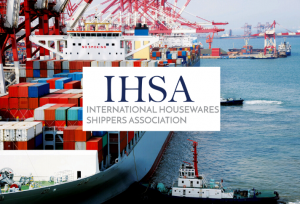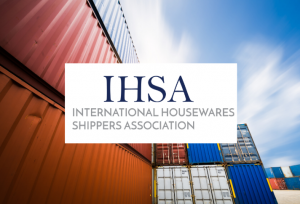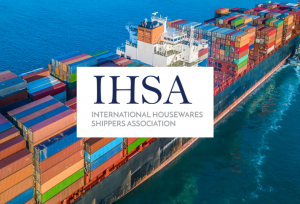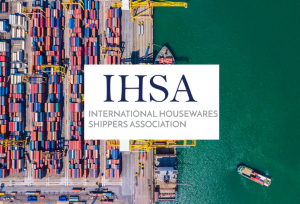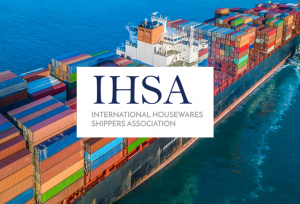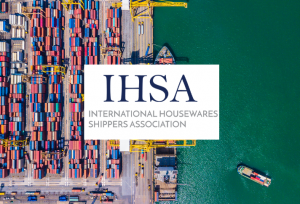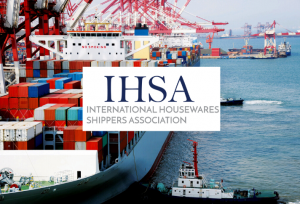The surge in US imports from Asia is causing supply chain challenges for shippers. The challenges come at a time when shippers are desperately trying to replenish their depleted inventories. The surge in imports is expected to last through the end of October. Some logistics experts are predicting the surge could last through the end of the year before the market…
CONTINUE READING
IHSA Shippers Association
Let the International Housewares Shippers Association help you reduce your ocean container freight costs!
Container Spot Rates Reach Record Highs
There appears to be no end in sight to the recent surge in spot rates on containers moving from Asia to the United States. The market has seen six straight weeks of spot rate increases buoyed by increased demand. The August 1, 2020 spot rate to move a container from Asia to US West Coast ports has reached a 10-year high of $3,167. This represents a 121% increase over the August…
CONTINUE READINGContainer Spot Rates Spike in June
Shippers are fed up with the carriers so-called capacity management strategy. The strategy of canceled sailings has resulted in thousands of US-bound containers being delayed in Asia. The lack of space available on ships has quickly driven spot rates to a 52-week high. The spot rates from Asia to US West Coast ports increased over $1000 in the last three weeks topping out…
CONTINUE READINGContainer Space Tightens from Asia to US
Due to lack of demand, carriers cancelled 20% of Asia to US sailings for the month of May. They have already announced plans to cancel 20% of their Asia to US sailings for the month of June. The containers already booked for June sailings reinforces that demand is starting to rebound. The uptick in container volume is a positive sign for all stakeholders but also presents…
CONTINUE READINGSourcing Shift from China Continues
The prolonged trade war between the US and China plus the emergence of COVID-19 have changed how importers should evaluate risk when finalizing their sourcing options. Importers that rely 100% on China for sourcing are more at risk than importers that have multiple sourcing options. Many US importers have already learned a lesson from relying too heavily on China for their…
CONTINUE READINGIHSA Ocean Contract Negotiations
IHSA and our carrier partners are fully engaged in contract negotiations that determine annual shipping rates for cargo shipped from Asia to the US. The new shipping rates will go into effect on May 1, 2020 and expire on April 30, 2021. When negotiations began, both parties were prepared to discuss the usual topics of rates, fuel, detention free time and space allocation.…
CONTINUE READINGCarriers Monitoring the Coronavirus
The carriers are monitoring the impact the coronavirus could have on containers moving from China to the US. They have refrained from cancelling sailings so far, but the situation is very fluid. To help contain the coronavirus, the Chinese government extended the Chinese New Year holiday for most of the country by 3 days. Factories located in areas hardest hit by the…
CONTINUE READINGScrubbers Could Provide Significant Cost Savings
Carriers that took the risk to install scrubber installations on their ships will likely have a competitive advantage in the containership industry. Effective January 1, 2020, vessels will be required to produce sulfur emission levels less than 0.5%. Scrubber installations allow carriers to buy the less expensive higher sulfur fuel. In principle, a scrubber cleans the…
CONTINUE READINGIMO 2020 Mandate – Delays and Uncertainty
Carriers are still struggling to provide firm information on how they intend to handle the International Maritime Organization (IMO) mandate to reduce marine pollution effective January 1, 2020. In two months, vessels will be required to have sulfur emission levels less than 0.5%. The carriers have publicly stated that this new mandate will cost the container shipping industry…
CONTINUE READING- « Previous Page
- 1
- …
- 5
- 6
- 7
- 8
- 9
- …
- 12
- Next Page »
